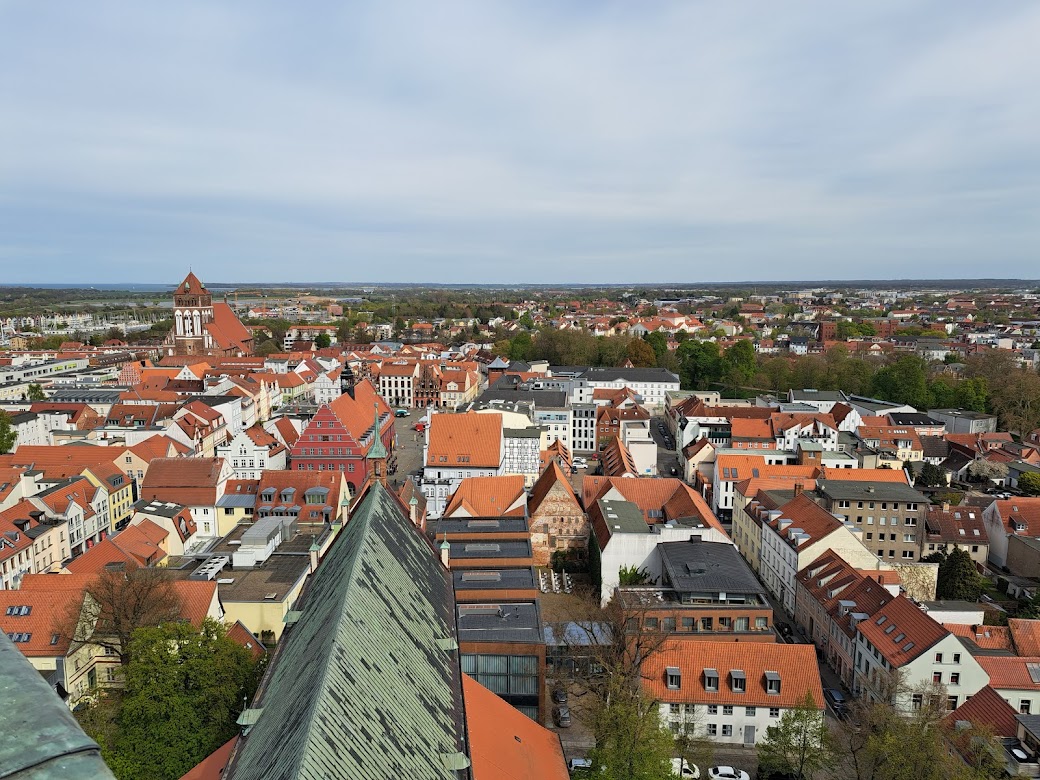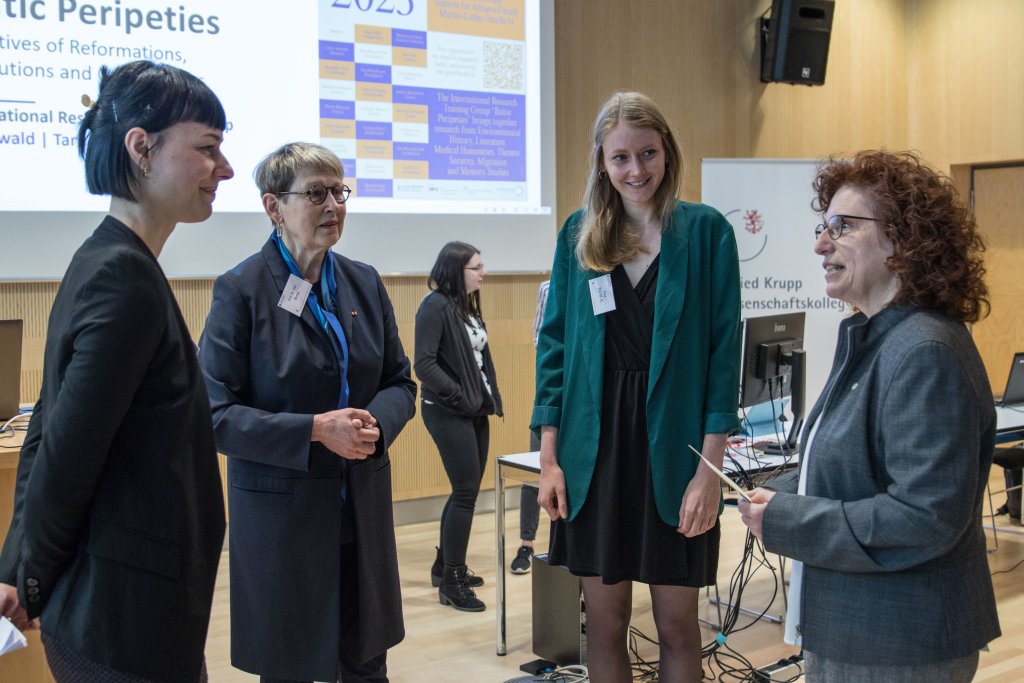
View over Greifswald. Photo by Anna Derksen.
Politico-historical and climatic processes of change continue to challenge the Baltic Sea Region. Given, for example, the lasting effect of the COVID-19 pandemic, unsolved issues of environmental pollution, and the effects of the war on Ukraine, it seems critical to understand how crucial moments of change – turning points – are conceptualised, remembered, and narratively negotiated. Borrowing from Aristotle’s Poetics, the concept of ‘peripety,’ denoting the unexpected reversal of circumstances in tragedy, promises a tool to examine the often-contradictory narrations of current and historical events within and beyond the Baltic Sea Region, as well as their impact on individual and collective sense-making through narratives as a foundation of human perception of reality.
Under this guiding concept, the conference, organised by the International Research Training Group 2560 (DFG) “Baltic Peripeties. Narratives of Reformations, Revolutions and Catastrophes” (Greifswald – Tartu – Trondheim), brought together research from Environmental History, Medical Humanities, Literature, Theatre, Security, Migration, and Memory Studies.
The full conference report can be read here: http://www.hsozkult.de/conferencereport/id/fdkn-137690
Impressions from the conference and guided tour to Eldena Abbey:
.

